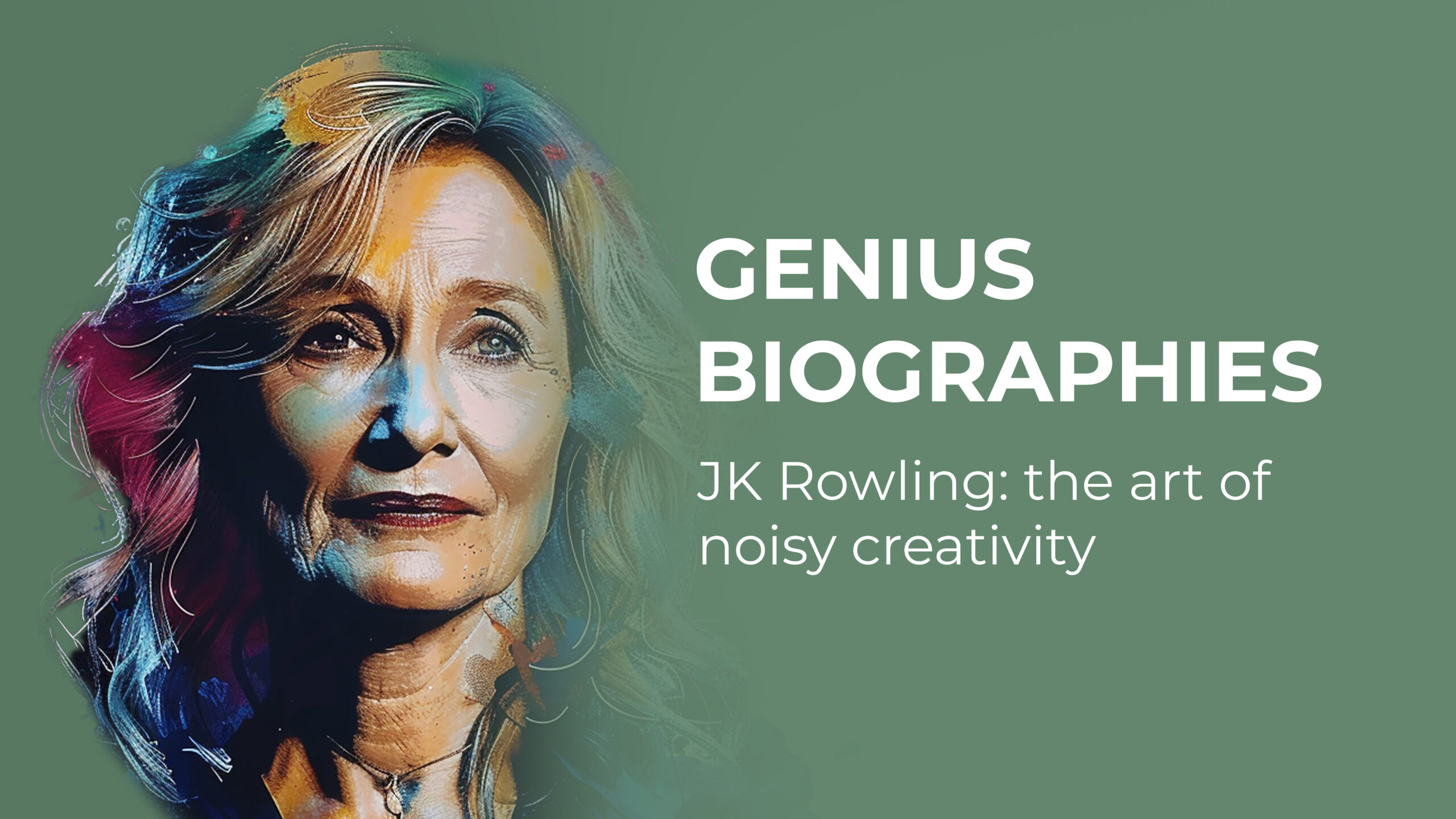JK Rowling: the art of noisy creativity

Why does Joanne Rowling’s prose flow like butter? What’s her secret to writing well?
Everyone knows her story. She was living on government benefits and was as poor as one possibly could be without being homeless. She had just escaped a failed marriage where her husband slapped her around. And a one year old daughter she had to take care of. She stayed in mouse infested homes. And wrote the first book in the Harry Potter series in busy cafes.
Would you be surprised to know that one reason why Rowling’s writing shines is because she wrote it in busy cafes instead of quiet libraries?
The resonance of noise
Imagine someone is whispering secrets to you from across the room. But their voice is so low that you can’t hear them.
There is a crackling of thunder and rain starts falling on the roof. And suddenly, you can hear the whispers better!
Why does this happen? What’s going on here? Scientists have studied this phenomena and call it stochastic resonance.
Background noise amplifies weak signals.
As un-intuitive as it is, background noise makes it easier to pick up radio signals - not harder. Raindrops make whispers sharper. When something weak gets mixed with a little bit of noise or messiness, instead of hiding, the weak signal becomes stronger and clearer.
The clatter of plates and the chatter of people enhanced Rowling’s focus. The background noise, instead of distracting Rowling, increased her mental stimulation and heightened her concentration. And got her to finish her manuscript. With a better flow of story and action.
It was the same with Richard Feynman too - who went on to win a Nobel in Physics. He infamously went to strip clubs to work while he was a teacher at Cornell. The background stimulation amplified and heightened his concentration.
But you have got to be careful of the Yerkes-Dodson Law.
Yerkes Dodson and the dancing mice experiment
Robert Yerkes and John Dodson conducted an experiment on mice in 1908. They installed a black box and a white box side by side. The mice would get non-lethal electric shocks if they entered the white box. But no shocks when they entered the black one.
When mild electric shocks were given, the mice took too long to learn to visit the black box alone.
When the strength of the shocks were increased, the mice learned faster.
Until a point. If the strength of the shocks was too high, the mice again took way too long to learn to only enter the black box. It’s unintuitive but this research has been done over and over.
Performance improves as arousal or stimulation of any kind is increased. But only up to a point. After a certain point, performance starts dropping as arousal increases. The whole thing can be charted as a bell curve. Too much stimulation will hinder performance. But no stimulation will hinder performance too.
-
One cup of coffee will help you focus. 10 will not.
-
Moderate exercising makes you more creative. Training for a marathon does not.
-
Transcranial stimulation - passing mild electric current across the skull - improves peoples maths abilities. Giving them stronger electric shocks does not.
Why does stimulation affect performance?
It’s to do with randomness. Weak sound waves can’t be heard. But when random noise is played in the background, some of the weak sound waves combine with the random waves and amplify.
Similarly, when faced with stimulation, the synapses in your brain fires neurons randomly. And as stimulation is increased, the firings of neurons increase - which leads to more connections in your brain. But excess firing of neurons causes congestion instead, and reduces the connections that can occur in your brain.
You’ve got to find that sweet spot. Arouse your brain. Don’t overwhelm it.
Rowling found her sweet spot in cafes. Because of which her stories were magic. The story arc flowed very well. And the children could not put her book down!
Action Summary:
- Don’t aim for complete reduction of noise. Background noise is good for improving performance. But only up to a certain level.
Enjoyed this biography?
Subscribe to get new biographies delivered to your inbox weekly.
We respect your privacy. Unsubscribe at any time.